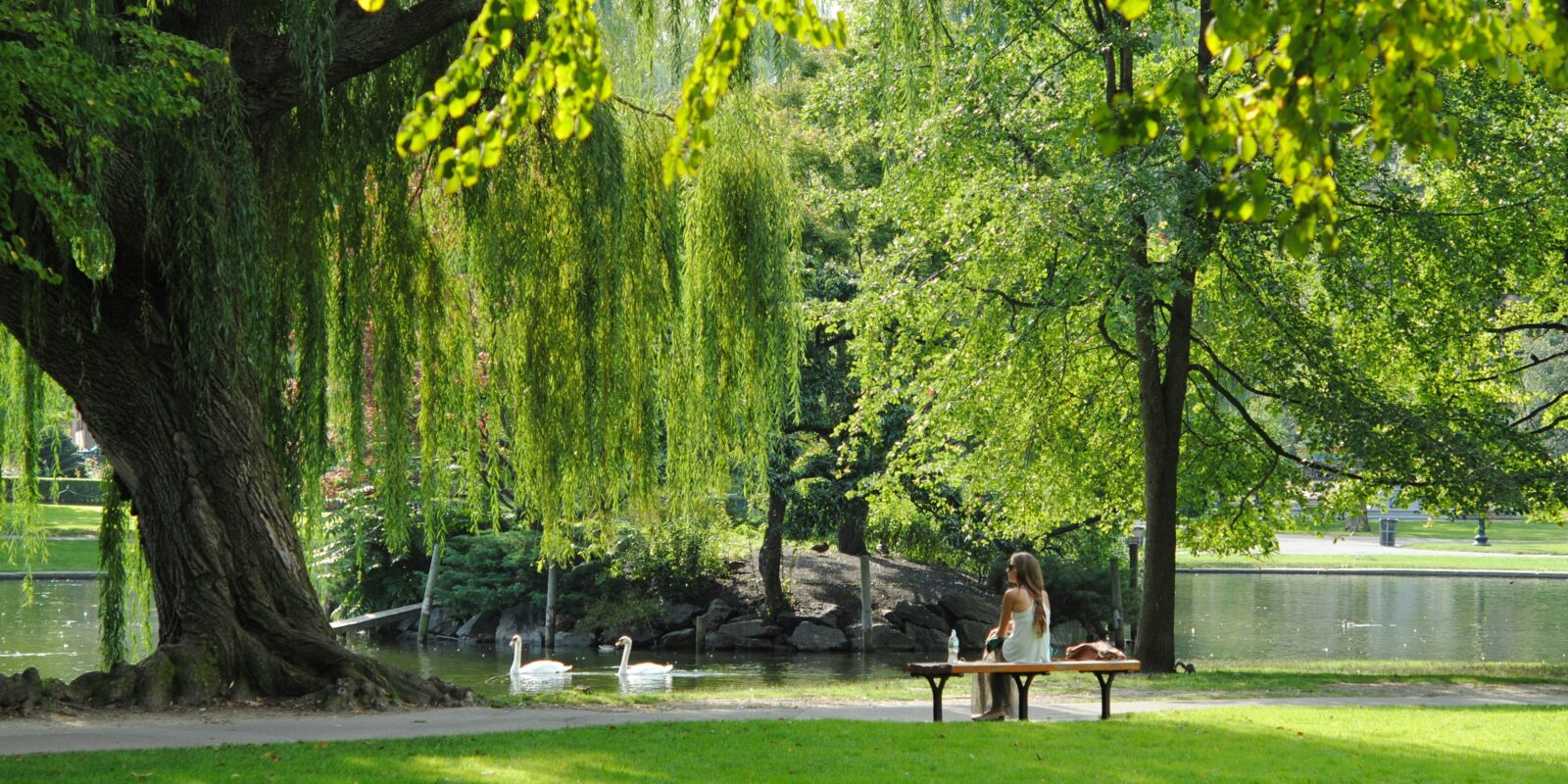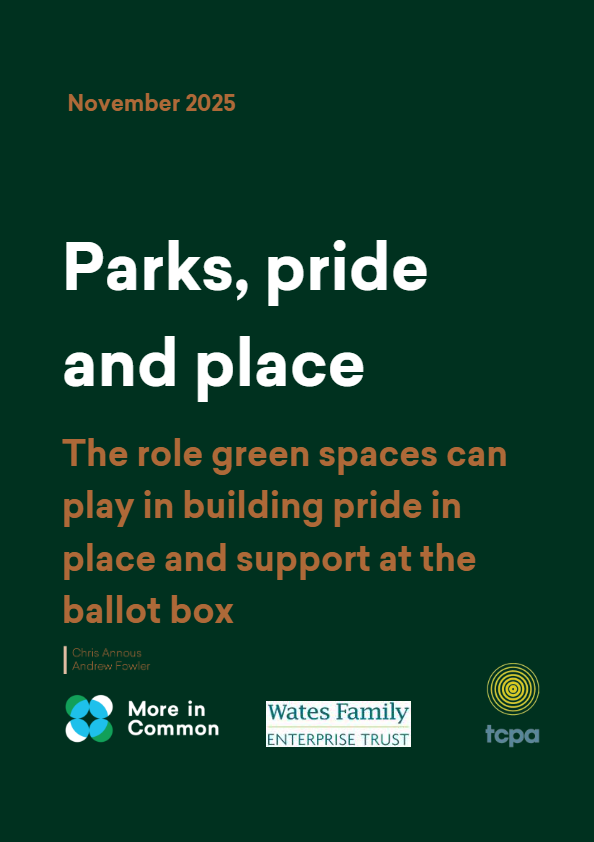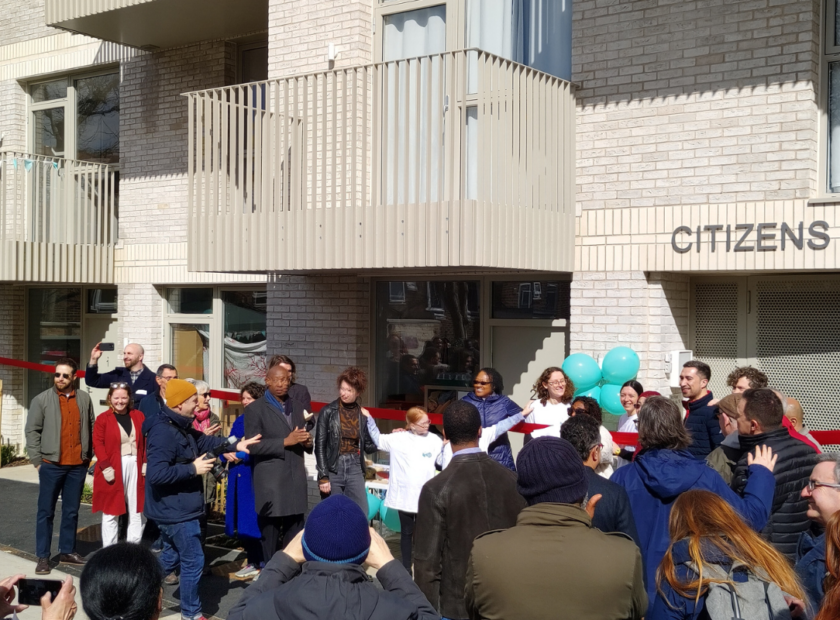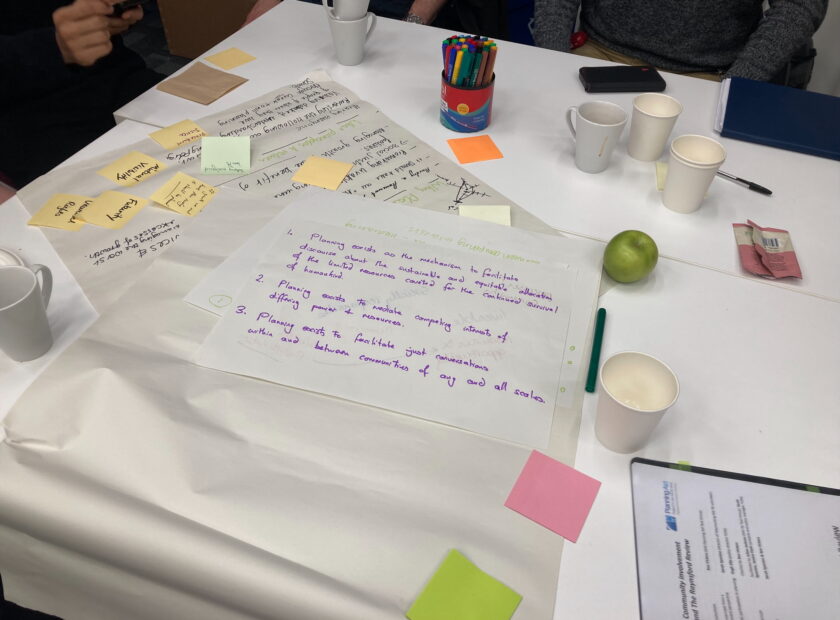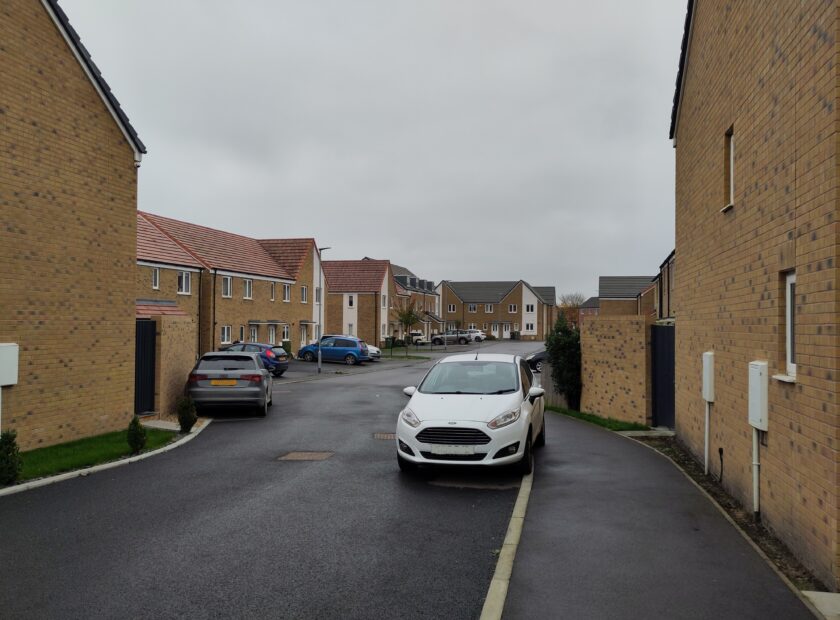New More in Common report, supported by the TCPA and funded by the Wates Family Enterprise Trust, finds restoring local green space would do more to repair public faith in the government’s ability to improve people’s lives than many flagship policies. Here are five key takeaways from the research.
1. A lack of hope in Labour
Amid the government’s renewed focus on restoring pride in place and local communities, the majority of Britons do not think that the Labour government will improve their area (74 per cent). This rises to 92 per cent of those intending to vote Reform.
2. Why does green space matter so much to Britons?
Mental health is the most important benefit felt by Britons, followed by the ability to connect with nature and exercise on green spaces . Many focus group participants spoke of the positive impact the pandemic has had in making them realise the importance of green spaces in supporting their mental health.
While some commentators may argue that connection to nature is a privilege only the wealthy and elites enjoy and care about, the report finds this is not the case with Reform voters more likely than the average Brit to say they value green spaces because of their ability to connect with nature through them.
Britons are united across the political divide in cherishing the benefits that green spaces bring to their communities.
‘I just think they’re good because even if kids live in an area let’s say, where they’ve not got a really nice space, they’ve still got somewhere they could sit on the grass or be able to sit with a friends and discuss problems or family troubles, do you get what I’m saying? Josh, Apprentice, living in Grimsby
What’s important to me is just being able to sit and listen to the birds. Stuart, not working due to disability, living in Wakefield
3. Green spaces as the great equaliser
Increasingly politics in the UK is being seen by Britons as a zero sum game, or as a battle of culture or identity. However Britons are most likely to believe that everyone benefits equally from investment in green spaces (61 per cent). When green spaces are developed and improved, the public think that everyone benefits, however the inverse of this is, that when they are not maintained, or fall into disrepair, everyone in the local community is seen to lose (36 per cent).
Focus group participants in Grimsby argued that the decline of their green spaces has damaged the cohesion of their community.
Without the green spaces, I don’t think people would really socialise much at all these days. Everything’s more expensive now than it used to be. And it’s finding the money as well because the cost of your bills has gone up significantly over the last few years. So finding that extra money to do something and so forth… just to go out is difficult. Peter, works part-time in a fish and chip shop, Grimsby
Across our focus group conversations, the allowance of the degradation of their parks and green spaces was seen as a key example of those in power not caring about the public or their local communities.
4. What bars Britons from enjoying green space?
Safety is the main barrier to Britons when it comes to using and accessing green spaces, a quarter of Britons saying safety is the biggest barrier. This is highest in Gen-Z women (31 per cent), and 10 per cent higher than their male counterparts. Focus group participants spoke of their anger about the anti-social behaviour, flytipping and littering they see taking place in their local parks and green spaces.
Women (45 per cent) are three times more likely to say they feel unsafe in parks when it is dark outside than men (16 per cent).
Britons say that green spaces are easy to access, with 4 in 5 saying that accessing their local green spaces is either very or somewhat easy. Only 5 per cent of Britons say that accessing their local green spaces is difficult, but this rises to 15 per cent among Britons living with a disability.
5. What do Britons want done?
51 per cent of Britons say that funding the creation of new high quality green spaces should be a priority for their local council.
Britons overwhelmingly believe green spaces should be controlled and managed by their local council – 93 per cent say they want their local councils to be responsible for maintaining their green spaces, against 64 per cent saying the same for the national government.
All 16 of the policies tested commanded majority support with strong support for policies which protect Britons’ access to green spaces in the planning system – including Biodiversity net gain reform to ensure nature uplift is captured in the local areas around developments. Amid a collapse in confidence in government, focus group participants made it clear that they wanted local communities to be empowered, with the resources they need, to look after their own green spaces.
The government should fund projects [to clean up their parks and green spaces] and the community should do the work. So if the council can help set up projects and work with the community to figure out what needs to be done and pay for it then that’s the way it should be done. Zane, Supermarket Assistant, Birmingham
Further details
The report leverages a nationally representative survey of 3,073 Britons. Survey fieldwork took place from 9 to 11 October 2025.
Four focus groups of 2024 Labour voters were held in constituencies emblematic of Labour’s collapsing electoral coalition: Wakefield and Rothwell, Scunthorpe, Great Grimsby and Cleethorpes, Birmingham Hall Green & Mosley, Birmingham Yardley, Birmingham Ladywood constituencies
This research was supported by the Wates Family Enterprise Trust and developed in partnership with the TCPA and Green Infrastructure Partnership.
